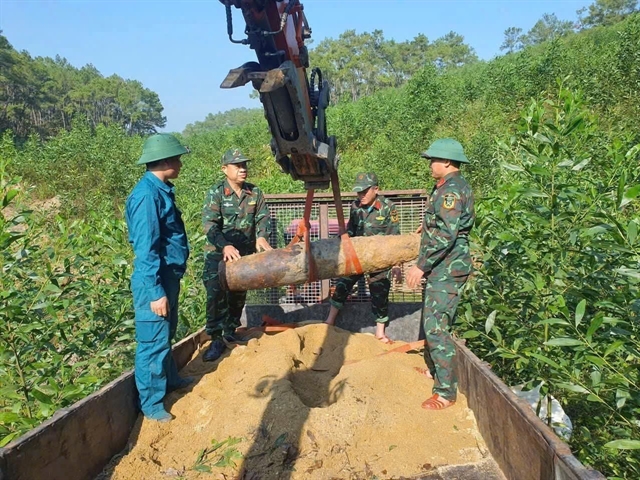 and Mr Joe Zhou, Group Vice President and Chief Executive Officer, Global Business of Concord New Energy (right) signed a Memorandum of Understanding to jointly develop Singapore’s first barge-based hydrogen power generation solution tailored for next-generation AI digital infrastructure.) Media-OutReach Newswire
Media-OutReach Newswire

SINGAPORE- Media OutReach - September6, 2018 - RuckusNetworks, anARRIS company, today unveiled its inaugural Asia Pacific (APAC) State ofWi-Fi Study, which revealed that connectivity downtime has caused a total lossof USD$51 million over the past year for respondents of theorganizations surveyed.
The study focused on determiningthe value of Wi-Fi in organizations, as well as identifying usage trends, and Wi-Fiissues and expectations. It surveyed 1,200 business and IT leaders across eightmarkets in APAC, including China, Hong Kong, Taiwan, Australia, Japan, India,Singapore and Indonesia. Respondents were made up of employees responsible for ITdecision-making or implementing IT-related initiatives for mid- to large-sizedorganizations with over 250 staff.
"Wi-Fi is the foundation of AsiaPacific's burgeoning digital economy. It is not only a productivity tool thatempowers employees to work and collaborate better, it is also a platform thatenables organizations to interact directly with their customers via apps, websitesand other digital services on the Internet," said William Ho, senior vice president,Asia Pacific and Japan, ARRIS. "Given the vital role that Wi-Fi plays insupporting an organizations' fundamental operations and new digitalinitiatives, Wi-Fi downtime can cause significant disruption, leading to lossesin revenue, productivity and other growth opportunities in today's dynamic andcompetitive digital environment."
Wi-FiDowntime Cause Significant Losses
Connectivity downtime hasimpacted the bottom line of the organizations surveyed. Close to one in twoAPAC organizations (47%) experienced at least six instances of connectivitydowntime over the last 12 months, with nearly one in ten (9%) of themindicating they have experienced over 20 instances of connectivity downtime. Incomparison, only 29% of respondents in Singapore indicated that they haveexperienced at least six instances of connectivity downtime over the last 12months.
In addition to theproductivity loss that connectivity downtime and other network-related issuescreate, organizations are unable to accelerate new digital innovations andtransform themselves with Wi-Fi downtime.
More than one-third (37%) ofthe IT departments in APAC and Singapore organizations need to spend a week ormore each month to manage Wi-Fi or network-related issues. This diverts timeand resources away from the IT department, hindering them from implementing newinitiatives that could help the organizations drive and deliver new digitalproducts, services, and revenue models.
Furthermore, nine in ten businessand IT leaders in APAC (90%) and Singapore (89%) agree that a bad Wi-Fiexperience will negatively affect the brand reputation. This comes as nosurprise as Wi-Fi is often the first and most fundamental point of interactionbetween an organization and its customers.
User Experience is the Main Concern for Wi-Fi
Addinganother layer of challenge to potential connectivity issues are the bandwidthdemands being driven by streaming videos, multiple personal devices and more.
Accordingto the study, more than half of the business and IT leaders in APAC (58%) andSingapore (54%) are using streaming videos or voice calls through Wi-Fi. Multimediacontent and the proliferation of connected devices are key drivers for high-speed,reliable connectivity in today's Wi-Fi user experience.
Nearlyhalf of the respondents in APAC (49%) and Singapore (43%) reported they carryat least four Wi-Fi capable devices including smartphones, tablets, laptops andsmart watches.
Thesetrends also mirror another finding from the study suggesting that business andIT leaders across APAC (76%) and Singapore (80%) indicate that slow Wi-Fi connectionspeeds are at the top of their list of concerns, followed by limited coveragearea and connection drops.
However, there is considerable room forimprovement with public Wi-Fi. In fact,less than one in four (24%) of these respondents in APAC and Singapore had agood experience with public Wi-Fi. As a result, only 14% of users in APAC and 17%in Singapore connect to public Wi-Fi most or all the time. This highlights asignificant gap that needs to be improved before APAC and Singapore can createa truly mobile workforce.
"Businessand IT leaders today not only expect fast Wi-Fi, but they also rely on a seamlessand dependable Wi-Fi experience while they are travelling, in the office or at apublic venue. These attributes enable them to have the freedom to workanywhere, anytime and ensure a high level of productivity," said Ho."Establishing great Wi-Fi connectivity with superior user experience is thebasis of flexible work practices and a connected global economy."
Wi-Fiin Organizations is Not as Secure as Business and IT Leaders Think
According to the study, more than half(53%) of respondents in APAC and Singapore rated the current state of Wi-Fisecurity in their organization as good or very good, indicating a moderatelevel of confidence in their organizations' Wi-Fi security posture. However,close to one in five (19%) of the APAC respondents indicated that they have anopen Wi-Fi network with no secure login measures. In Singapore, 21% ofrespondents use open networks.
In the same vein, in APAC and Singapore,more than three in five (65%) APAC and Singapore organizations only use basicusernames and passwords to provide Wi-Fi access. At the same time, most of thebusiness and IT leaders indicated that their home Wi-Fi connections are eitheropen or use a basic username and password combination to protect the network.
These findings not only illustrate amisplaced sense of confidence that leaders have in their Wi-Fi security butalso demonstrate that they have a sloppy approach to securing their Wi-Fi. Although,when it comes to IT and business leaders connecting to unfamiliar Wi-Finetworks, they became more vigilant about security. Approximately four in five(83%) APAC and Singapore (78%) respondents indicated an insecure connection as oneof the top three concerns they have when connecting to public Wi-Fi.
These findings illustrate that securityis top of mind for these decision-makers, but they are complacent when it comesto Wi-Fi security for networks they own or are familiar with in theirenvironment.
AboutRuckus Networks
Ruckus Networks, an ARRIS company, is redefining connectivity aroundthe globe. With our partners, we build secure wired and wireless accessnetworks for organizations that place a premium on connectivity experiences forend users as well as networking simplicity for IT.
About ARRIS
ARRIS International plc (NASDAQ:ARRS) is powering a smart, connected world. The company's leading hardware,software and services transform the way that people and businesses stayinformed, entertained and connected. For more information, visit www.arris.com.
For the latest ARRIS news:
ARRIS and theARRIS Logo are trademarks or registered trademarks of ARRIS Enterprises,Inc. All other trademarks are the property of their respectiveowners. © 2018 ARRIS EnterprisesLLC. All rights reserved.




